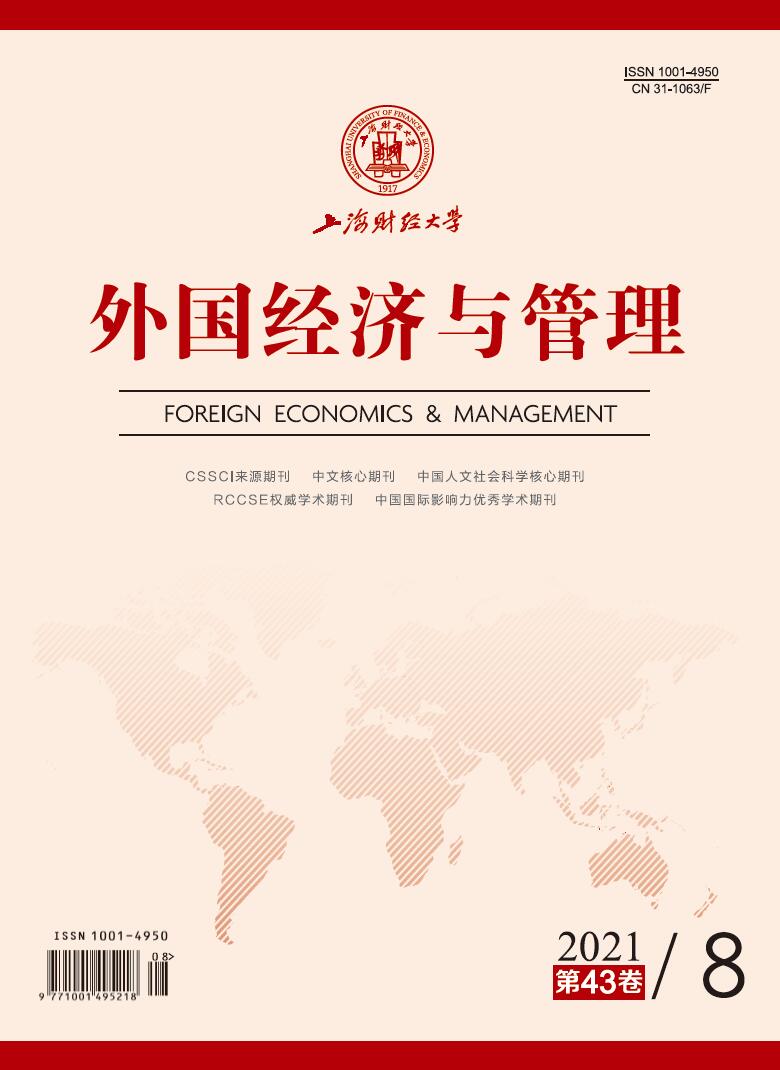夫妻共治能抑制公司“掏空”吗?探究该问题对于中国家族企业治理意义重大。本文以2007—2017年中国A股上市家族企业为样本,考察了夫妻共治对公司利益侵占行为的影响。研究结果发现:(1)相比于其他类型的家族企业,夫妻共同控制的家族企业更少地侵占中小股东利益。(2)“夫唱妇随”共同参与经营管理,能显著降低利益侵占行为发生;而婚姻的破裂带来了极大的负面影响,会显著增加公司利益侵占水平。(3)女性的人力资本特质以及其在家族企业内外部的权力使其“监督效应”更为有效,降低了利益侵占行为发生。本文将社会学与公司治理理论相结合,探讨了“夫妻共治”家族企业在公司治理中的作用,研究发现有助于深入理解中国情境下家族企业内部的异质性对公司治理的影响,尤其是夫妻关系对抑制“掏空”的积极作用。
“妇女能顶半边天”——夫妻共治能抑制“掏空”吗?
摘要
参考文献
1 贺小刚, 李婧, 陈蕾. 家族成员组合与公司治理效率: 基于家族上市公司的实证研究[J]. 南开管理评论,2010, 13(6): 149-160. DOI:10.3969/j.issn.1008-3448.2010.06.016
7 潘安成, 肖宇佳. “家和万事兴”: 夫妻关系维持与日常创业行为的探索性研究[J]. 南开管理评论,2017, 20(5): 56-68. DOI:10.3969/j.issn.1008-3448.2017.05.006
15 Adams S M, Gupat A, Leeth J D. Are female executives over-represented in precarious leadership positions?[J]. British Journal of Management,2009, 20(1): 1-12. DOI:10.1111/j.1467-8551.2007.00549.x
16 Amore M D, Miller D, Le Breton-Miller I, et al. For love and money: Marital leadership in family firms[J]. Journal of Corporate Finance,2017, 46: 461-476. DOI:10.1016/j.jcorpfin.2017.09.004
17 Ashraf N. Spousal control and intra-household decision making: An experimental study in the Philippines[J]. American Economic Review,2009, 99(4): 1245-1277. DOI:10.1257/aer.99.4.1245
19 Belenzon S, Patacconi A, Zarutskie R. Married to the firm? A large-scale investigation of the social context of ownership[J]. Strategic Management Journal,2016, 37(13): 2611-2638. DOI:10.1002/smj.2441
20 Berrone P, Cruz C, Gomez-Mejia L R. Socioemotional wealth in family firms: Theoretical dimensions, assessment approaches, and agenda for future research[J]. Family Business Review,2012, 25(3): 258-279. DOI:10.1177/0894486511435355
21 Bird M, Zellweger T. Relational embeddedness and firm growth: Comparing spousal and sibling entrepreneurs[J]. Organization Science,2018, 29(2): 264-283. DOI:10.1287/orsc.2017.1174
22 Björnberg Å M, Coyle-Shapiro J A M. A relational model explaining work and relationship outcomes of co-entrepreneurs[A]. Proceedings of the 2009 academy of management annual meeting[C]. Chicago, 2009.
23 Chrisman J J, Chua J H, Litz R A. Comparing the agency costs of family and non-family firms: Conceptual issues and exploratory evidence[J]. Entrepreneurship Theory and Practice,2004, 28(4): 335-354. DOI:10.1111/j.1540-6520.2004.00049.x
24 Danes S M, Jang J. Copreneurial identity development during new venture creation[J]. Journal of Family Business Management,2013, 3(1): 45-61. DOI:10.1108/20436231311326481
25 Dyer W G, Dyer W J, Gardner R G. Should my spouse be my partner? Preliminary evidence from the panel study of income dynamics[J]. Family Business Review,2013, 26(1): 68-80. DOI:10.1177/0894486512449354
26 Erat S, Gneezy U. White lies[J]. Management Science,2012, 58(4): 723-733. DOI:10.1287/mnsc.1110.1449
27 Fietze S, Holst E, Tobsch V. Germany’s next top manager: Does personality explain the gender career gap?[R]. IZA Discussion Paper No. 5110, 2010.
29 Ghosh A, Tang C Y. Assessing financial reporting quality of family firms: The auditors׳ perspective[J]. Journal of Accounting and Economics,2015, 60(1): 95-116. DOI:10.1016/j.jacceco.2015.03.002
30 Gilbert E. Committed: A love story[M]. London: Bloomsbury Publishing Plc, 2010.
31 Gómez-Mejía L R, Haynes K T, Núñez-Nickel M, et al. Socioemotional wealth and business risks in family-controlled firms: Evidence from Spanish olive oil mills[J]. Administrative Science Quarterly,2007, 52(1): 106-137. DOI:10.2189/asqu.52.1.106
32 Heck R K Z, Hoy F, Poutziouris P Z, et al. Emerging paths of family entrepreneurship research[J]. Journal of Small Business Management,2008, 46(3): 317-330. DOI:10.1111/j.1540-627X.2008.00246.x
33 James H S. Owner as manager, extended horizons and the family firm[J]. International Journal of the Economics of Business,1999, 6(1): 41-55. DOI:10.1080/13571519984304
34 Jiang G H, Lee C M C, Yue H. Tunneling through intercorporate loans: The China experience[J]. Journal of Financial Economics,2010, 98(1): 1-20. DOI:10.1016/j.jfineco.2010.05.002
35 Khan W A, Vieito J P. CEO gender and firm performance[J]. Journal of Economics and Business,2013, 67: 55-66. DOI:10.1016/j.jeconbus.2013.01.003
36 Lewicki R J, McAllister D J, Bies R J. Trust and distrust: new relationships and realities[J]. The Academy of Management Review,1998, 23(3): 438-458. DOI:10.5465/amr.1998.926620
37 Liu Q G, Luo T P, Tian G G. Family control and corporate cash holdings: Evidence from China[J]. Journal of Corporate Finance,2015, 31: 220-245. DOI:10.1016/j.jcorpfin.2015.02.007
38 Miller D, Le Breton-Miller I, Lester R H, et al. Are family firms really superior performers?.[J]. Journal of Corporate Finance,2007, 13(5): 829-858. DOI:10.1016/j.jcorpfin.2007.03.004
39 Nicolosi G, Yore A S. “I Do”: Does marital status affect how much CEOs “Do”?[J]. Financial Review,2015, 50(1): 57-88. DOI:10.1111/fire.12060
40 O’Connor V, Hamouda A, McKeon H, et al. Co-entrepreneurial ventures: A study of mixed gender founders of ICT companies in Ireland[J]. Journal of Small Business and Enterprise Development,2006, 13(4): 600-619. DOI:10.1108/14626000610705778
41 Patel P C, Chrisman J J. Risk abatement as a strategy for R& D investments in family firms[J]. Strategic Management Journal,2014, 35(4): 617-627. DOI:10.1002/smj.2119
42 Rivas M F. An experiment on corruption and gender[J]. Bulletin of Economic Research,2013, 65(1): 10-42. DOI:10.1111/j.1467-8586.2012.00450.x
43 Roussanov N, Savor P. Marriage and managers’ attitudes to risk[J]. Management Science,2014, 60(10): 2496-2508. DOI:10.1287/mnsc.2014.1926
44 Stein J. Takeover threats and managerial myopia[J]. Journal of Political Economic,1988, (96): 61-80.
45 Villalonga B, Amit R. How do family ownership, control and management affect firm value?[J]. Journal of Financial Economics,2006, 80(2): 385-417. DOI:10.1016/j.jfineco.2004.12.005
46 Villalonga B, Amit R. How are U. S. family firms controlled?[J]. Review of Financial Studies,2009, 22(8): 3047-3091. DOI:10.1093/rfs/hhn080
47 Wille B, Wiernik B M, Vergauwe J, et al. Personality characteristics of male and female executives: Distinct pathways to success?[J]. Journal of Vocational Behavior,2018, 106: 220-235. DOI:10.1016/j.jvb.2018.02.005
48 Yu A, Lumpkin G T, Sorenson R L, et al. The landscape of family business outcomes: A summary and numerical taxonomy of dependent variables[J]. Family Business Review,2012, 25(1): 33-57. DOI:10.1177/0894486511430329
49 Zaheer A, McEvily B, Perrone V. Does trust matter? Exploring the effects of interorganizational and interpersonal trust on performance[J]. Organization Science,1998, 9(2): 141-159. DOI:10.1287/orsc.9.2.141
引用本文
许宇鹏, 程博, 潘飞. “妇女能顶半边天”——夫妻共治能抑制“掏空”吗?[J]. 外国经济与管理, 2021, 43(8): 73-87.
导出参考文献,格式为:





 10704
10704  5179
5179

